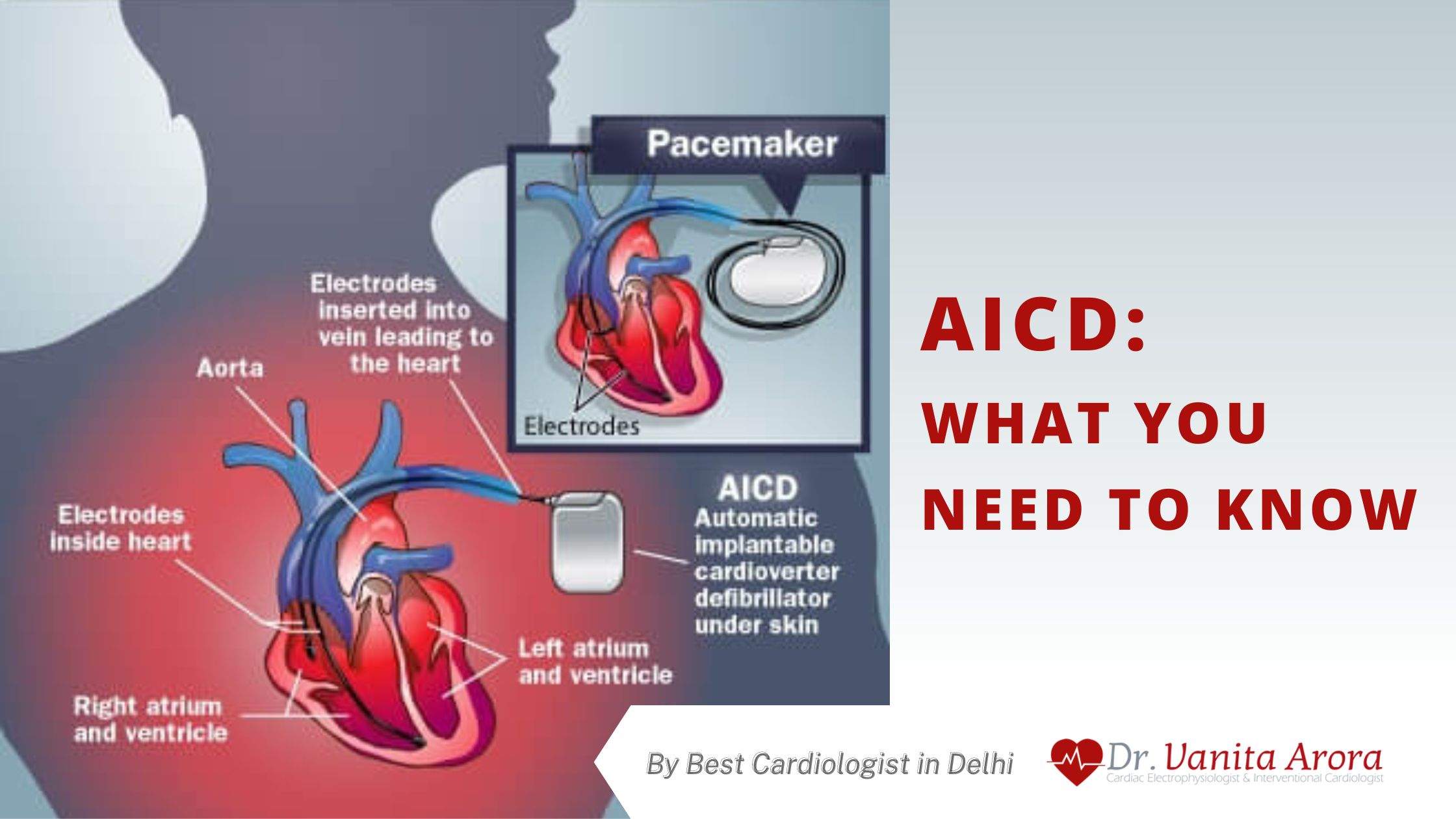
 August 30, 2022 | 3 minutes read time
August 30, 2022 | 3 minutes read timeThe implantation of an automatic implantable cardioverter defibrillator (AICD) is a life-saving procedure that has been shown to reduce mortality, and reduce the risk of sudden death.
An AICD is a device that is implanted in the chest of a patient with an abnormally high risk of sudden death. This device is able to sense an abnormal rhythm, or arrhythmia, which is then corrected by a small electrical shock.
In this brief article, the leading heart specialist in Delhi sheds light on AICD implantation.
The Automatic Implantable Cardioverter Defibrillator is a device that is implanted under the collarbone to detect the onset of an abnormal heart rhythm and automatically correct it, the top cardiologist in Delhi explains.
It is a life-saving device that is implanted in people who have a high risk of sudden cardiac arrest, including people who have congestive heart failure, have an enlarged heart (cardiomyopathy), or have excessive rapid heartbeats (called ventricular tachycardia).
The AICD consists of a shock generator, and leads. The shock generator is surgically inserted under your collarbone and the leads are connected to your heart, the renowned cardiologist in Delhi explains.
When AICD first detects arrhythmia, it sends a burst of high-speed pacing. This is known as Over Drive Pacing (ODP), according to the best heart specialist in Delhi. It that doesn’t work, the AICD delivers an electrical shock. This is referred to as defibrillation.
Patients aren’t usually aware of ODP, but almost always aware when defibrillation occurs. It feels like a thump in the chest. The AICD is also helpful in monitoring your heart’s electrical activity which is regularly checked by cardiologists during your appointments.
Before the AICD implantation procedure, you’ll be given a mild sedative to help you feel comfortable and relaxed. The implantation site (area under your collarbone) will be numbed using a local anaesthetic.
After making a small incision (5-8 cms), the cardiologist will insert the AICD. The third major step involves guiding the leads through a vein and connecting them to the heart. Once the ACID implantation is complete, the incision is sewn together. The entire process takes around 1hour.
You will be monitored overnight for vitals signs, bleeding or swelling at the wound site. Your blood pressure and heart rhythm will be monitored, the leading heart specialist in Delhi explains. After the procedure, your doctor will keep tabs on your condition through follow up appointments.
Dr. Vanita is one of the best heart specialists in Delhi. She has been awarded the Chikitsa Ratna and Woman Doctor Entrepreneur of the Year 2018. AICD implantation is one of her many expertise and she has been treating patients with cardiac disorders for three decades.
To book an appointment, call +91 98738 79994 or fill this form. You can also send an email at doctorvanitaarora@gmail.com.
Promoted by Fix Me Digitally